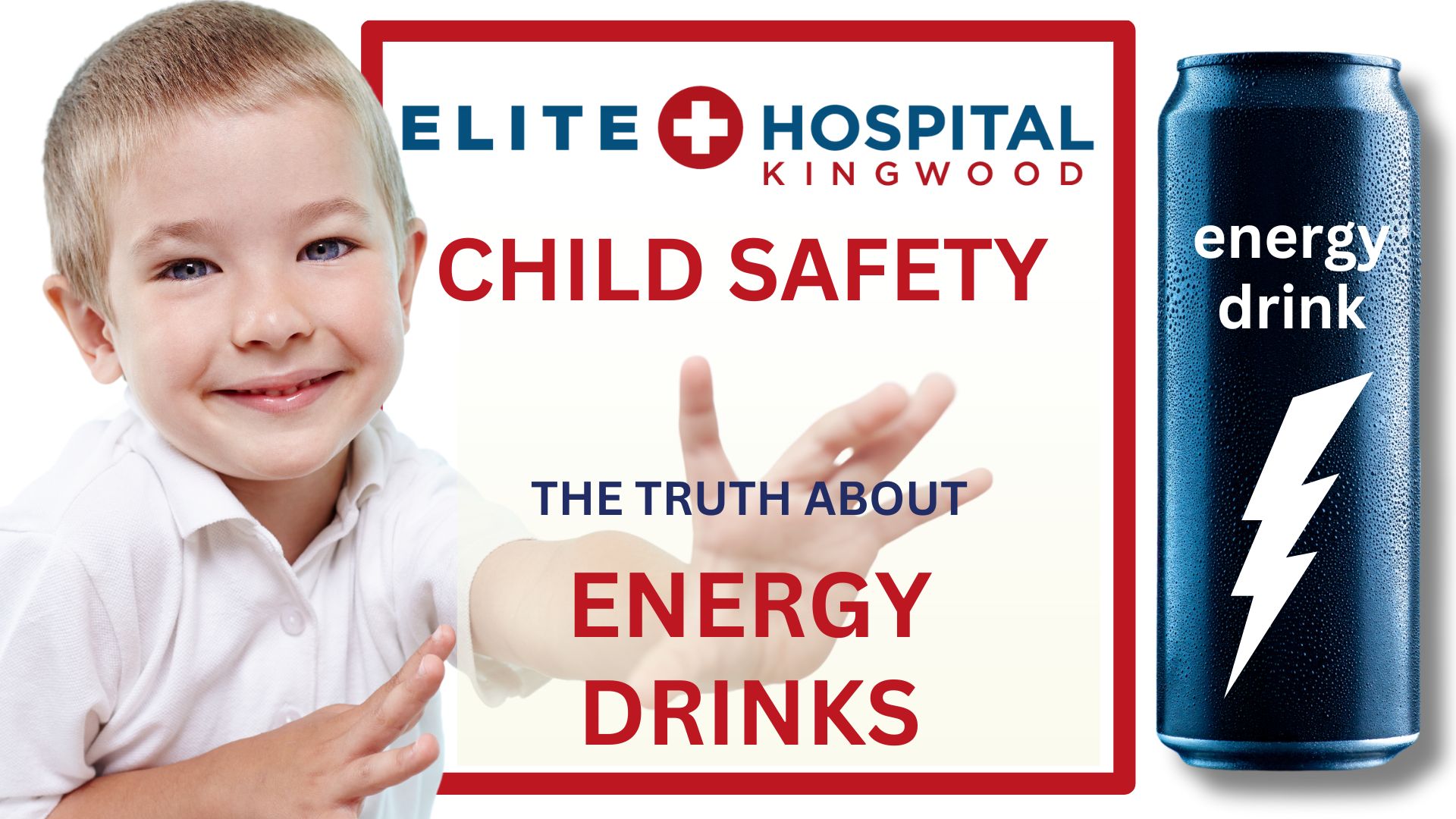
Energy drinks are often marketed as quick sources of energy and focus, but for children and teenagers, they can pose significant health risks. According to recent reports, Poison Control Center calls related to children consuming these caffeinated drinks have increased by 20%, highlighting a disturbing trend of accidental and intentional ingestion among young individuals. As parents, understanding the risks and taking preventive steps is critical to protecting your children from the potential dangers of energy drinks.
Why Energy Drinks Are Dangerous for Children
Energy drinks contain high levels of caffeine, sugar, and other stimulants like guarana, taurine, and ginseng, which can cause harmful side effects. While adults may tolerate these ingredients in moderation, children’s smaller bodies and developing systems are much more susceptible to the dangers they pose.
The Rise in Poison Control Calls
The rise in Poison Control Center calls is a clear indication that children are consuming energy drinks at alarming rates. According to the American Association of Poison Control Centers (AAPCC), reports of children under 6 years old consuming energy drinks, either accidentally or intentionally, have surged. Children may mistake energy drinks for soda or juice, not realizing the potential harm they pose. The issue isn’t limited to younger children; teens and young adults are intentionally consuming these drinks in large quantities, unaware of the severe side effects they can experience.
How to Protect Young Children
Preventing accidental ingestion is key to protecting younger children. Here are steps you can take:
- Store Drinks Out of Reach: Like any other hazardous substance, energy drinks should be kept out of children’s reach. Store them on high shelves or in locked cabinets.
- Education: Teach children early on about the dangers of energy drinks. Explain that these are not regular drinks and can make them feel very sick if consumed.
- Look for Child-Friendly Labels: Some energy drinks come in brightly colored cans that are attractive to children. Be cautious about keeping such products in your home, and opt for beverages with less enticing packaging.
- Check Labels Before Purchase: Many parents buy energy drinks without realizing just how harmful they can be to children. Always check the labels for high levels of caffeine, sugar, or any other ingredients that may be dangerous to your family.
Risks for Teens and Young Adults
While young children are often at risk due to accidental consumption, teenagers and young adults frequently consume energy drinks intentionally, unaware of the side effects. Here’s what you need to know:
Possible Side Effects
- Increased Heart Rate: The high caffeine content in energy drinks can lead to an increased heart rate (tachycardia). In some cases, this can trigger palpitations or even arrhythmias, which may require medical intervention.
- High Blood Pressure: Caffeine and stimulants can raise blood pressure, putting teens with underlying heart conditions at risk for more serious complications.
- Insomnia: Energy drinks often promise better focus and alertness, but they can interfere with normal sleep patterns, leading to insomnia and other sleep disorders in teens and young adults.
- Behavioral Changes: Excessive consumption can lead to irritability, anxiety, and even panic attacks in some teens, who are more vulnerable to the effects of stimulants.
- Dehydration: Energy drinks can cause dehydration due to their diuretic effect, especially when consumed during physical activity.
Life-Threatening Complications
While most energy drink side effects are manageable, there are more severe and life-threatening risks, particularly for teens who may consume them in large quantities. In extreme cases, these drinks can cause:
- Cardiac Arrest: Some teens may suffer from heart complications after consuming multiple caffeinated drinks, especially if they have pre-existing heart conditions.
- Seizures: The caffeine and other stimulants in energy drinks can lower the seizure threshold, leading to the potential for seizures in children with epilepsy or even those without a history of seizures.
- Diabetes Complications: The high sugar content in many energy drinks can also lead to spikes in blood sugar, which can be particularly dangerous for teens with undiagnosed or poorly managed diabetes.
What Parents Can Do
Parents of teens and young adults should be vigilant in discussing the risks of energy drink consumption. Some strategies include:
- Open Communication: Discuss the dangers of energy drinks with your teen. Make sure they understand that these drinks are not harmless and can have serious side effects.
- Set Limits: If your teen is consuming caffeinated drinks, set clear limits on how many they can have and educate them on the potential risks of consuming too many.
- Provide Alternatives: Encourage healthier alternatives for boosting energy, such as getting enough sleep, eating nutritious foods, and drinking plenty of water.
Elite Hospital Kingwood Cares
The growing consumption of these drinks among children and teens is a serious concern, and parents must take proactive steps to protect their children from accidental ingestion and the long-term health risks associated with these beverages. Elite Hospital Kingwood encourages parents to stay informed, be vigilant about energy drink consumption in their homes, and seek immediate medical care if their child or teen experiences any adverse symptoms after consuming an energy drink.
For more information or if you suspect your child has consumed an energy drink and is experiencing symptoms, don’t hesitate to visit Elite Hospital Kingwood for emergency care.
Works Cited
American Association of Poison Control Centers. AAPCC, 2023, www.aapcc.org/energy-drinks.
Reissig, Chad J., Eric C. Strain, and Roland R. Griffiths. “Caffeinated Drinks—A Growing Problem.” Drug and Alcohol Dependence, vol. 99, no. 1-3, 2009, pp. 1-10.
